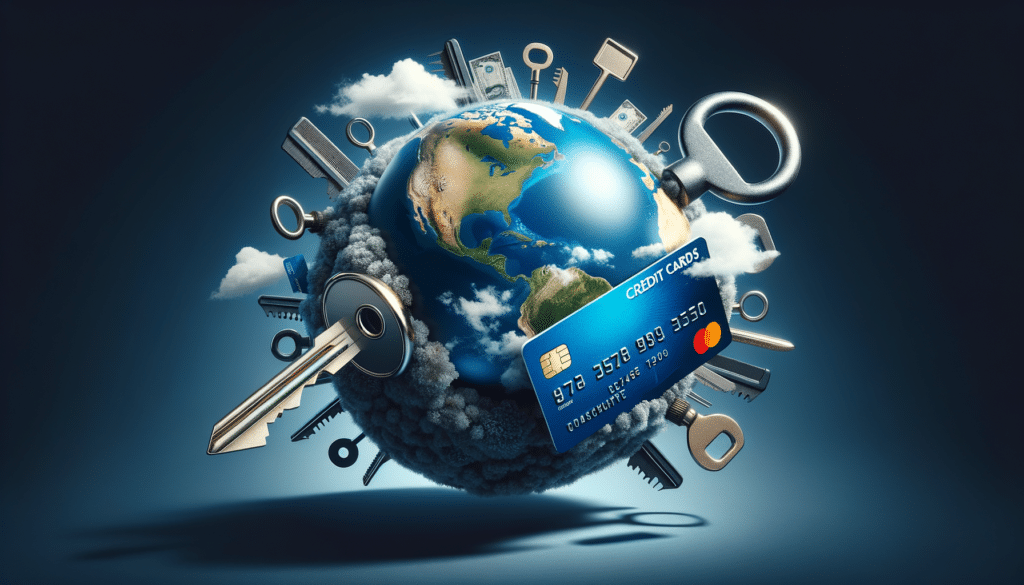The Evolution of Credit Cards
Credit cards have become an integral part of modern financial systems, evolving from their humble beginnings into a sophisticated tool for managing personal and business finances. The concept of credit dates back to ancient times, but the first universal credit card was introduced in the 1950s. This marked a significant shift in the way consumers interacted with businesses, allowing for greater flexibility and convenience in transactions.
Initially, credit cards were made of paper and required manual processing, which was both time-consuming and prone to errors. However, technological advancements have transformed credit cards into the plastic or metal cards we use today, embedded with chips and magnetic stripes. These innovations have not only enhanced security but also streamlined the payment process, making it faster and more reliable.
The digital age has further revolutionized credit card usage with the introduction of contactless payments and virtual cards. These developments have made transactions even more seamless, allowing consumers to make purchases with just a tap or a click. As credit cards continue to evolve, they remain a crucial component of the global economy, facilitating billions of transactions every day.
Understanding Credit Card Types
Credit cards come in various forms, each designed to cater to different consumer needs and preferences. Understanding the different types of credit cards can help consumers choose the one that best suits their financial habits and goals. Here are some of the most common types:
- Standard Credit Cards: These are the most basic type of credit cards, offering a line of credit that can be used for purchases, balance transfers, and cash advances. They typically do not offer rewards or special benefits.
- Rewards Credit Cards: These cards offer incentives such as cashback, points, or miles for every dollar spent. They are ideal for consumers who pay off their balance each month and want to earn rewards for their spending.
- Secured Credit Cards: Designed for individuals with limited or poor credit history, secured credit cards require a cash deposit as collateral. They are an effective way to build or rebuild credit over time.
- Business Credit Cards: Tailored for business owners, these cards offer features such as expense tracking, higher credit limits, and rewards specific to business expenses.
By understanding the nuances of each type, consumers can make informed decisions that align with their financial objectives and lifestyle.
Credit Card Benefits and Drawbacks
Credit cards offer numerous benefits, making them a popular choice for consumers worldwide. However, they also come with potential drawbacks that users should be aware of. Here, we explore both sides of the credit card equation.
Benefits:
- Convenience: Credit cards allow for quick and easy transactions, eliminating the need to carry cash.
- Rewards and Perks: Many cards offer rewards programs, cashback, travel benefits, and purchase protection.
- Credit Building: Responsible use of credit cards can help build a positive credit history, improving credit scores over time.
- Fraud Protection: Credit cards often come with robust fraud protection measures, providing peace of mind for consumers.
Drawbacks:
- High-Interest Rates: Carrying a balance on a credit card can lead to significant interest charges, increasing debt over time.
- Potential for Debt: Mismanagement of credit cards can result in accumulating debt, impacting financial stability.
- Fees: Some credit cards come with annual fees, foreign transaction fees, and other charges that can add up.
Understanding these benefits and drawbacks can help consumers use credit cards wisely, maximizing their advantages while minimizing potential pitfalls.
How to Choose the Right Credit Card
Selecting the right credit card requires careful consideration of various factors to ensure it aligns with personal financial needs and lifestyle. Here are some key aspects to consider when choosing a credit card:
- Spending Habits: Analyze your spending patterns to determine which type of rewards program would benefit you the most. For instance, if you travel frequently, a card offering travel rewards might be ideal.
- Interest Rates: Compare the annual percentage rates (APRs) of different cards, especially if you plan to carry a balance. Lower interest rates can save you money in the long run.
- Fees: Consider any fees associated with the card, such as annual fees, late payment fees, and foreign transaction fees. Some cards offer no annual fee, which can be a significant advantage.
- Credit Limit: Ensure the credit limit offered meets your needs without encouraging overspending.
By evaluating these factors, consumers can select a credit card that not only meets their financial requirements but also offers additional benefits that enhance their overall financial well-being.
Tips for Responsible Credit Card Use
Using credit cards responsibly is crucial to maintaining financial health and avoiding debt. Here are some practical tips to help manage credit card usage effectively:
- Pay Your Balance in Full: Whenever possible, pay off your credit card balance in full each month to avoid interest charges and debt accumulation.
- Monitor Your Spending: Keep track of your credit card transactions to ensure you stay within your budget and avoid overspending.
- Set Up Alerts: Use credit card alerts to remind you of upcoming due dates and monitor for any unauthorized transactions.
- Review Statements Regularly: Regularly review your credit card statements to catch any errors or fraudulent charges promptly.
- Maintain a Low Credit Utilization Rate: Aim to keep your credit utilization rate below 30% to positively impact your credit score.
By following these tips, consumers can enjoy the benefits of credit cards while minimizing the risks associated with their use.





